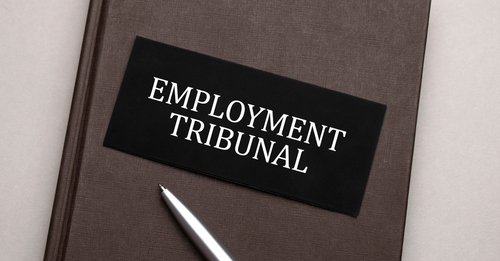In Hindmarch v North-East Ambulance NHS Foundation Trust the Employment Appeal Tribunal (EAT) has dismissed an appeal against an employment tribunal’s decision to reject claims of failure to make reasonable adjustments and unfair dismissal.
During the pandemic Mr Hindmarch who was a non-emergency ambulance driver, refused to work unless the Trust provided him with an FFP3 mask. The Trust’s normal practice was to issue FFP2 masks to non-emergency drivers. Mr Hindmarch contended that the FFP3 mask would alleviate his extremely heightened anxiety about catching COVID-19 while transporting COVID-19-positive patients.
The Trust employer refused. They relied on national guidance and explained that an FFP3 mask would not provide Mr Hindmarch with complete protection from COVID-19. Given this fact an FFP3 mask was unlikely to alleviate his concerns given his extreme anxiety. He argued that by having FFP3s this would enable him to return to work. He stopped short however of unequivocally stating that he would indeed return to work if given an FFP3 mask. He was dismissed on grounds of capability due to ill health while on long-term sickness absence and subsequently brought claims including failure to make reasonable adjustments and unfair dismissal.
A first instance employment tribunal dismissed his claims. It found that his employer had not failed to make reasonable adjustments in breach of sections 20(3) and 20(5) of the Equality Act 2010 because there was no real prospect that providing the mask would have enabled him to return to work.
He appealed the decision to the Employment Appeal Tribunal (EAT).
The EAT dismissed his appeal.
The case law is clear, including the Supreme Court decision in Paulley v FirstGroup plc, that if there is no real prospect that an adjustment will alleviate or remove the disadvantage then the employer is not under a duty to make the adjustment. This position is also reflected in the Equality and Human Rights Commission Employment Statutory Code of Practice. Based on the evidence before it, the tribunal was entitled to conclude that providing the FFP3 mask would have made no difference. Had there been an affirmative confirmation from the claimant that the adjustment would make him happy to return to work things may have turned out differently. On the evidence this was not the case.
Regarding unfair dismissal, the EAT held that the tribunal had not assumed that the failure of the reasonable adjustments claim automatically meant the unfair dismissal claim would fail. Rather, the central issues for both claims were more or less identical, focusing on the refusal to provide the FFP3 mask. The EAT allowed the decision to dismiss to stand.
